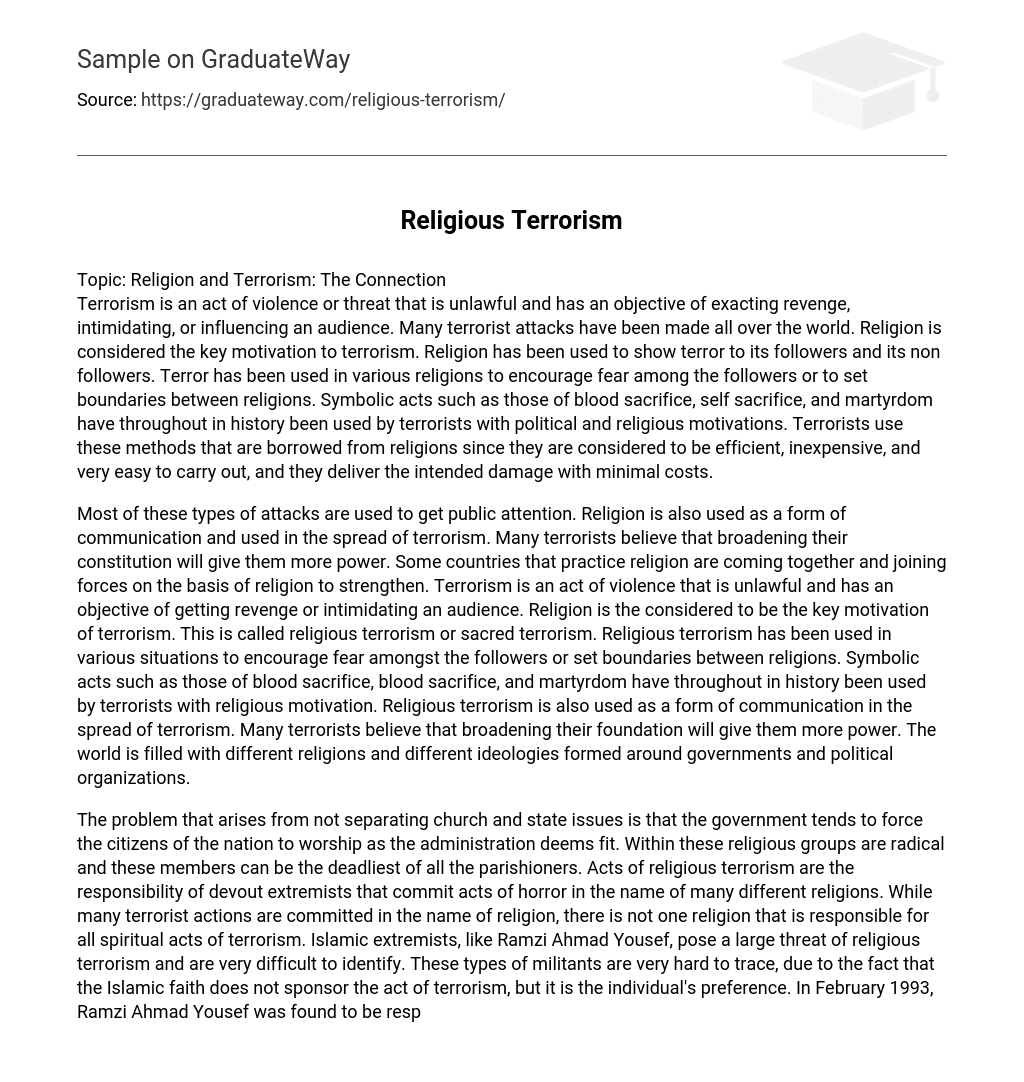Topic: Religion and Terrorism: The Connection
Terrorism is an act of violence or threat that is unlawful and has an objective of exacting revenge, intimidating, or influencing an audience. Many terrorist attacks have been made all over the world. Religion is considered the key motivation to terrorism. Religion has been used to show terror to its followers and its non followers. Terror has been used in various religions to encourage fear among the followers or to set boundaries between religions. Symbolic acts such as those of blood sacrifice, self sacrifice, and martyrdom have throughout in history been used by terrorists with political and religious motivations. Terrorists use these methods that are borrowed from religions since they are considered to be efficient, inexpensive, and very easy to carry out, and they deliver the intended damage with minimal costs.
Most of these types of attacks are used to get public attention. Religion is also used as a form of communication and used in the spread of terrorism. Many terrorists believe that broadening their constitution will give them more power. Some countries that practice religion are coming together and joining forces on the basis of religion to strengthen. Terrorism is an act of violence that is unlawful and has an objective of getting revenge or intimidating an audience. Religion is the considered to be the key motivation of terrorism. This is called religious terrorism or sacred terrorism. Religious terrorism has been used in various situations to encourage fear amongst the followers or set boundaries between religions. Symbolic acts such as those of blood sacrifice, blood sacrifice, and martyrdom have throughout in history been used by terrorists with religious motivation. Religious terrorism is also used as a form of communication in the spread of terrorism. Many terrorists believe that broadening their foundation will give them more power. The world is filled with different religions and different ideologies formed around governments and political organizations.
The problem that arises from not separating church and state issues is that the government tends to force the citizens of the nation to worship as the administration deems fit. Within these religious groups are radical and these members can be the deadliest of all the parishioners. Acts of religious terrorism are the responsibility of devout extremists that commit acts of horror in the name of many different religions. While many terrorist actions are committed in the name of religion, there is not one religion that is responsible for all spiritual acts of terrorism. Islamic extremists, like Ramzi Ahmad Yousef, pose a large threat of religious terrorism and are very difficult to identify. These types of militants are very hard to trace, due to the fact that the Islamic faith does not sponsor the act of terrorism, but it is the individual’s preference. In February 1993, Ramzi Ahmad Yousef was found to be responsible for the explosion of a massive van bomb in an underground parking garage of the World Trade Center in New York, which killed six and wounded over 1,000. This would later turn out to not be the only attack on the World Trade Center. Unlike the interconnected terrorist groups of the past, many of the Islamic militant members are individuals who do not owe allegiance to any particular association, making identification and trace checks very difficult because not every member of the Islamic faith is a terrorist.





